In this era where disasters and unforeseen catastrophes hit when they are least expected, the term SHTF became widely used.
It appears in survival movies involving a zombie apocalypse, a strong storm, a pandemic, or a great scarcity.
However, even though many people encountered this acronym, some do not know what it truly means.
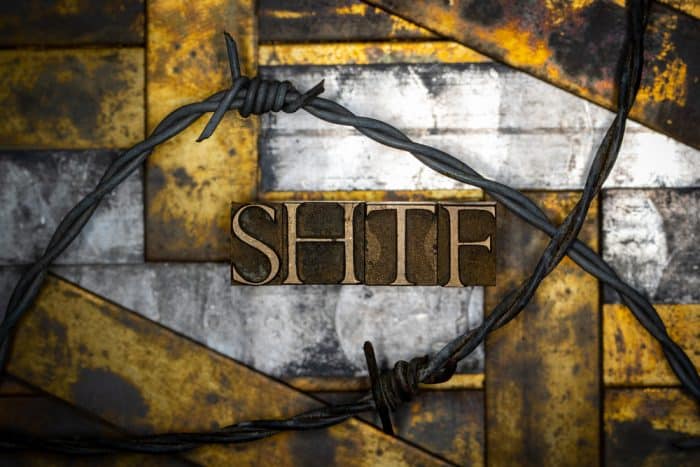
If you are one of the people perceiving this abbreviation as alien, worry not! We will walk you through this read to introduce SHTF, what it means, the scenarios, and the preventive measures before and during the strike.
What Is SHTF?
SHTF means “Shit Hits The Fan” It is a term used when everything goes crazy upside-down —raiding angry mobs, scarce resources, incurable disease, or intense bombing. Shit hits the fan depicts a picture of an unforeseen disastrous event that can change lives 180 degrees instantly.
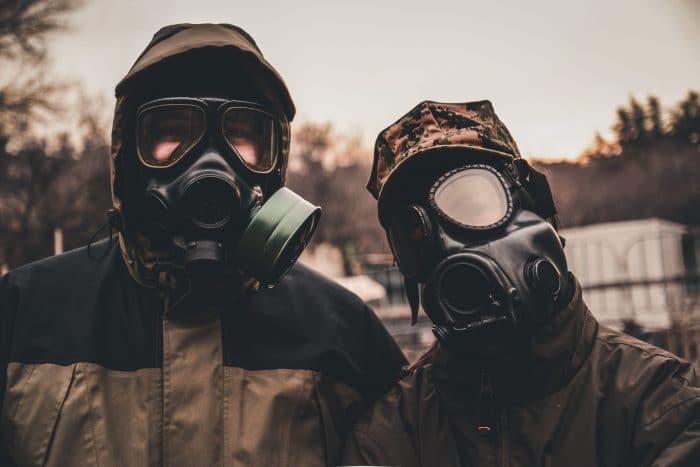
A group of people called “preppers” use SHTF scenarios as a motivation to plan and prepare in terms of their food stock, evacuation areas, and other essential things to survive. Even so, we must understand that there are different SHTF occurrences.
Therefore, the kind of prepper a person is depends on the disaster or event they are working out for. It is essential to recognize that safe places, necessities, and tools needed varies on what the situation requires. Being prepared will lessen the panic notwithstanding a society in its collapsing state.
Moreover, preparedness also reduces the mortality rate. Shifting your current lifestyle to prepping may not come in handy, but it will be worth it.
Some people may think that preppers are doomed, and they are romanticizing the EOTW ( End of the World) or what some would call the “Dooms Day.” But switching to a prepper way of life is simply protecting yourself and your family members from the fatality that SHTF events may bring to your lives and properties.
Different Types of SHTF Occurrence
Personal
SHFT events are not always at the societal level where everybody is affected. Sometimes it exists inside the four walls of our household. And these things are enough to damage lives and leave a devastating experience to some.
1. Financial Difficulty

As a person, we all have ups and downs in life. One of the most common trials that a normal human being encounters is financial difficulty. It prevents people from acquiring their needs and wants.
Financial literacy can help you manage your money, have savings and investments for retirement, and set aside an emergency fund.
It can be detrimental to trap yourself in living off all your salary for a month, leaving your bank zero or what they call a “rat-race lifestyle.” Worse will come to worst if a disaster hits and you have nothing left in your pocket.
To avoid this SHTF scenario, try to get yourself protected by insurance or set aside 20% of your salary for savings. Nothing beats having a peaceful mind knowing that you have a lot of money not just for survival but also to satisfy your wants.
2. Job-Loss
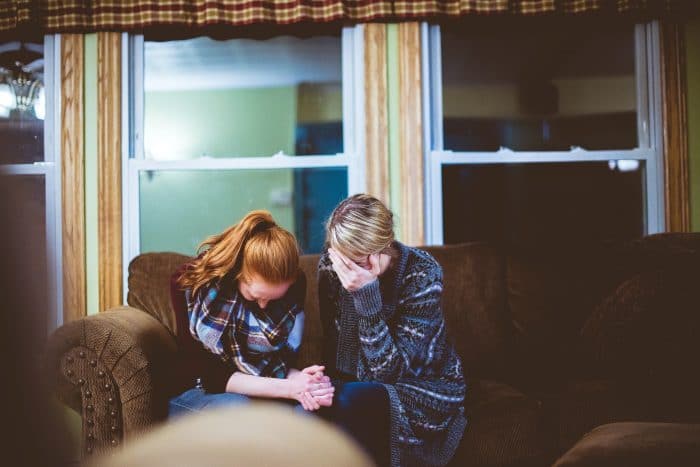
Losing a job as a single and losing a career as a family person can have many adverse effects. It can cause depression, piled-up debt, divorce, committing a crime, and drug- addiction.
Therefore, it is advantageous to have multiple sources of cash flows to avoid this kind of dilemma.
Please do not put all your bets in one pot, as they say. Losing a job will not be as fatal as most people perceive if you have other jobs or businesses to get your income from. Take note that job loss will prevent you from buying your essentials, and when a widespread SHTF comes, you can die first, not because of the disaster but because of hunger.
3. Severe Sickness or Death of The Breadwinner
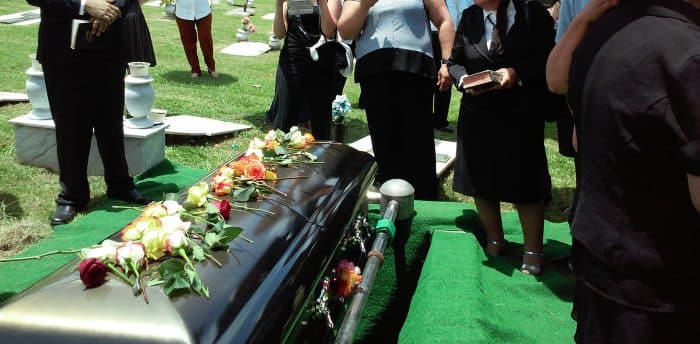
Losing the pillar of the household is devastating not only mentally but also financially.
It can be a cause of separation of family members, most especially siblings if the other parent cannot provide for their basic needs.
If you are a breadwinner, make sure that you will not leave your house crumbling when you get sick or dead. Genuinely caring for your family means giving importance to paying premium coverage for them to live a life still well lived even though you are not with them.
4. Mental Issues

We subconsciously put ourselves into an unintentional and unnecessary competition in this world bombarded with the so-called “perfect life” on social media platforms.
And sometimes, being unable to cope with this can lead to shattered self-esteem, depression, and insecurity.
Aside from this, other things cause psychological disorders that sometimes a person cannot distinguish the actual origin of the problem. Knowing where it is coming from helps you deal with the hardship piece by piece until you already find yourself free from the dark box you were once in.
Most of the time, mental health issues hinder people from being efficient and productive daily. It also prevents you from generating creative and worthwhile ideas.
Therefore, it is essential to seek help from a family member or an expert to surpass the situation. After all, you will find yourself stronger, possessing the grit that you need for other obstacles that may come your way.
Natural
Some things are out of human control. And the only way to deal with this stuff is always to come prepared. Here are some of the most common natural disasters you must consider in your readiness plan or strategy.
1. Earthquake
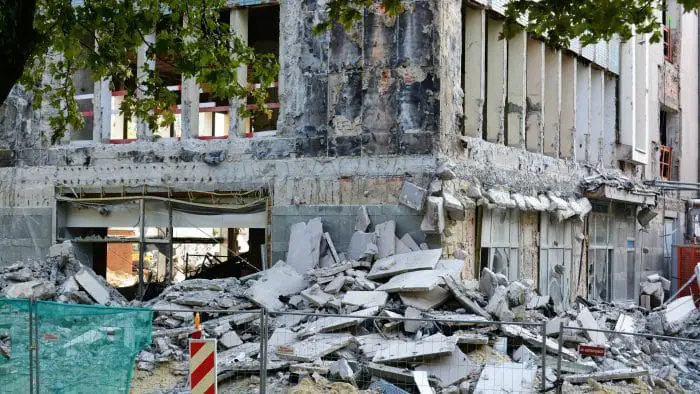
An earthquake is the sudden rolling of the earth’s surface. A high-intensity earthquake can cause landslides, tsunamis, and debris flow, or even sinkholes.
And, over the centuries, there are valuable records of damaged properties and deaths due to this natural disaster.
Since natural disasters are unpreventable, we can observe proper practices to lessen and avoid further damage. Whenever this happens, find a sturdy place to hide under and protect yourself, especially your head, from the falling debris, a table, for instance.
Duck, cover, and hold. Stay away from glass or walls, and get yourself out of a tall building. It is preferable if you immediately go to a clear and comprehensive area such as open fields.
2. Hurricanes and Tropical Storms

Hurricanes and storms are natural disasters that people can prepare for months or weeks before they land.
Experts, satellites, and other weather equipment can predict when and where the landfall may take place.
If your place is prone to hurricanes and storms, look around your house if some heavy bushes and trees can be a hazard and ruin your home during the calamity.
You can prune them beforehand during springtime or dormant seasons.
During excessive rainfall, flash floods may occur. Therefore, it is a must for you and your family to have a well-elevated area for evacuation. Houses in hurricane and storm-prone areas usually have two or more stories.
3. Tornadoes
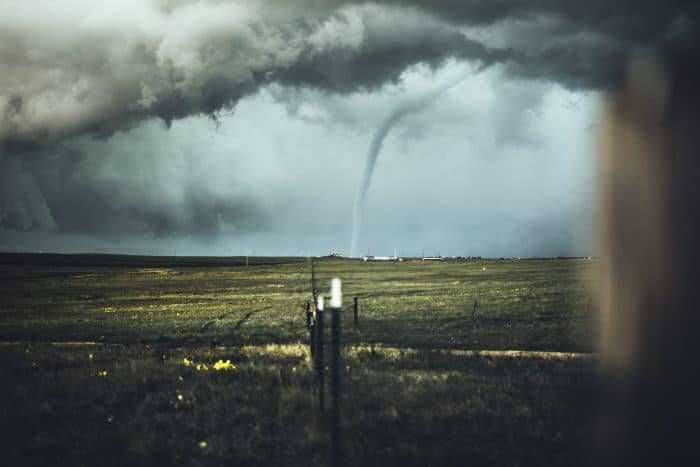
Tornadoes are a substantial vicious rotating column of wind. It can toss cars, ruin houses, and generate hazardous flying debris.
During a disaster, it is better to stay in a flat, low-lying location. Avoid standing near doors and windows since they may shatter, and broken glass can cut you open.
Basements or storm cellars are a must part of your house when choosing to live in tornado-prone areas. However, if you do not feel secure staying in your home, immediately go to safe public shelters.
Always prepare a “go bag” containing all your essentials so that you won’t have to lift your necessities when SHTF. Truthfully, it is the useless things you might pack in your bag due to panic.
4. Pandemic

Things go hysterical the moment people realize that a new strain of virus that was once detrimental to animals becomes life-threatening to humans as well.
No vaccines available at hand, no known precautionary health protocols, and everything is at square one.
There is an abundance of reasons why a pandemic is not a movie-fiction thing anymore. One of these is biological evolution due to climate and environmental change. Little did we know that a microscopical thing can cause the fall of humanity on a global scale. And, this is where we can say the SHTF already.
5. Extreme Winter
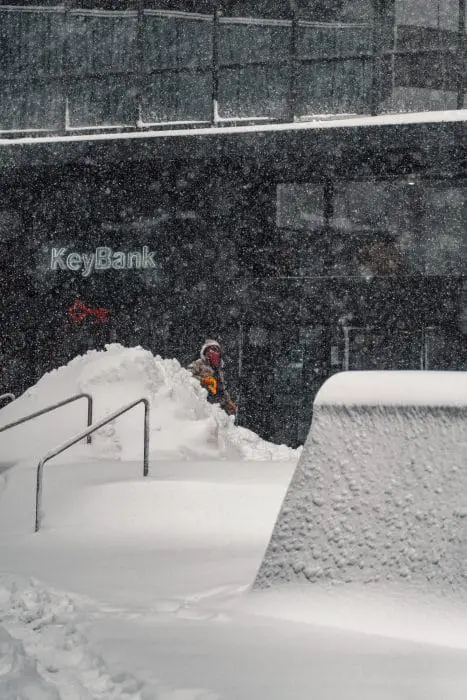
Extreme cold temperatures can pose serious health and safety problems. It may cause a sudden drop of body temperature to some body parts that may lead to injuries that can escalate to, worst, hypothermia.
Colds and viruses also thrive in cold places, bringing fever, chills, nasal congestion, and other respiratory system complications.
Pipelines and water reservoirs can turn into ice which can cause loss of water supply. Therefore, it is improving to store potable drinking water to avoid dehydration during this time.
Man-made
1. Biological Warfare
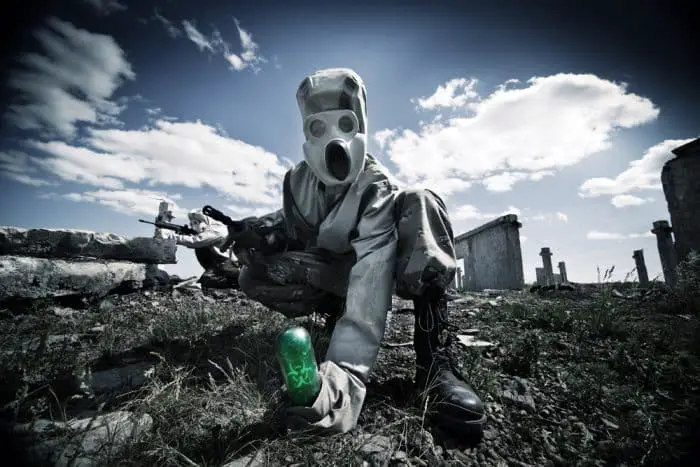
Biological warfare is a scenario wherein natural agents or organisms are deployed in a particular place to destroy crops, livestock, or worse human beings.
It can make a living thing suffer from disease instead of using weapons like guns, bombs, and other ammunition. Animals can be used as a host or sometimes diffused into the air and water to spread the infection or virus.
To prepare for this SHTF scenario building an emergency Supply Kit that should include masks and a Family emergency plan is a must. Also, make sure that you and everyone in your household’s vaccinations are up to date.
In the event of a biological threat:
- Make yourself knowledgeable on the current status.
- Always check the news to be educated on the pain points in the area for you to avoid.
- Always wear face masks every time you encounter people outside your household.
- Avoid being in a crowd and never share your food and utensils with anyone.
- Observe proper hygiene by washing your hands with soap frequently.
If you feel symptoms similar to the disease, immediately separate yourself from other family members and call the medical expert for assistance.
2. Civil Disturbance

It is also known as a civil disorder or social unrest. It is where a group of people arise and disobey the authorities.
One of the main reasons for this riot is the government passed a law that they perceived as unjust and wrong.
Whenever this problem arises, immediately vacate the area and stay away from the crowd. Things like burning establishments and shattering window panes could happen. It can also lead to physical harm or damage.
3. Terrorism
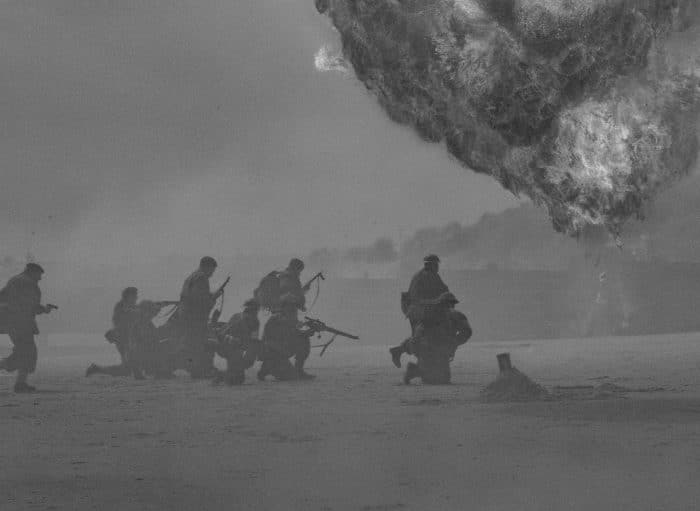
Terrorism uses violence against society to intimidate the government and taint the economy for gaining personal or political objectives.
It can bring about destruction to property, lives, and tourism of a particular country.
Create an alternative communication medium and avoid using regular mobile and smartphones to prevent yourself and your family from being tracked down. Always listen to the government authorities’ precautionary measures and announcements.
Tips Before An SHTF Moment
Be a Prepper
Shifting your current lifestyle into a prepper or survivalism lifestyle involves serious decision-making. A prepper lifestyle needs commitment and patience in terms of educating oneself and making a strategic plan.
Also, when you decide to become one, all the household members must be involved as well. You can not be a hero or heroine, saving everybody in your house whenever the disaster strikes.
Preppers may vary based on the type of disaster they are preparing for. It is essential to recognize what kind of prepper you want to anchor the level of preparedness and the steps to take during the process, for instance, buying the right tools, equipment, and essentials.
Do Not Hoard; Keep Necessary Things Only
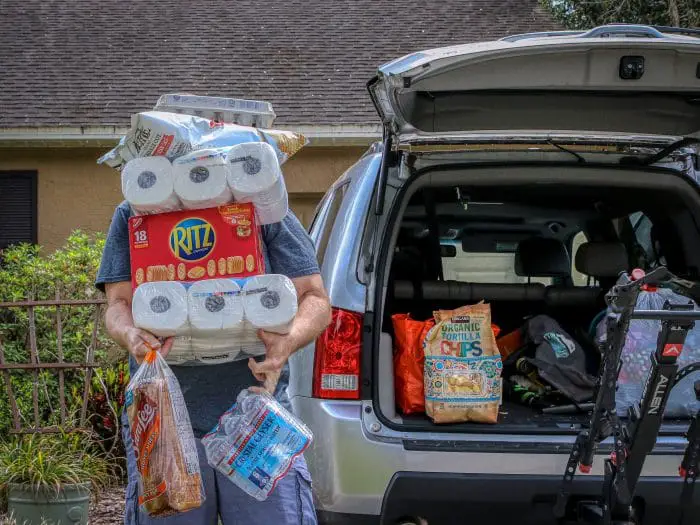
Prepping and hoarding are two different things. Prepping means stocking only the basic stuff up.
While hoarding is accumulating all the things necessary or unnecessary. To hoard means to steal goods from other people who are also in need.
Therefore, it is vital to have an inventory of the things that you need inside the house and things that can sustain everyone whenever a power outage or scarce food supply happens. It is crucial to store supplies that can last for at least two (2) weeks for you to survive.
Remember to always check the expiration dates of the essentials you buy to avoid using expired goods, which can be more of a hazard when the time comes.
Prepare large water containers or tanks. Water is one of the essential must-haves for survival. Have separate storage for bath water and drinking water. Buy water filters and purifiers. These will help you decontaminate the water at your disposal.
Create A Strategic Plan
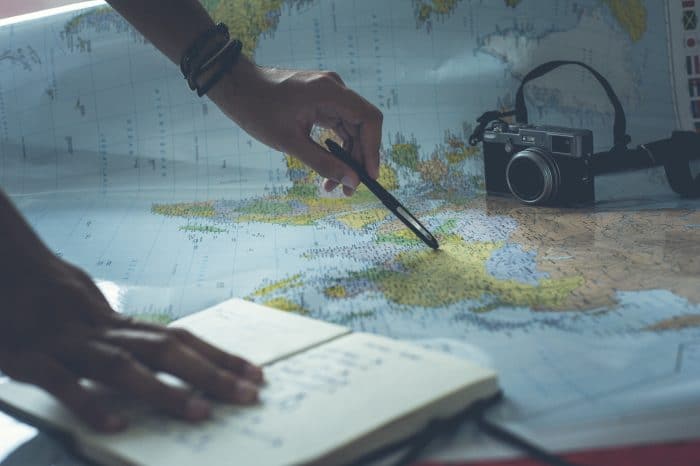
Planning is a vital part of survival. Know your evacuation area when the SHTF happens.
If you have family members with you, division of tasks is crucial. Make sure that the tasks given to them fit their capability.
Moreover, consider your home security in your plan to avoid dangerous entries. In terms of food consumption, you can also include meal plans in your strategy to make the supply last until everything goes back to normal.
Make A Backup Communication Device
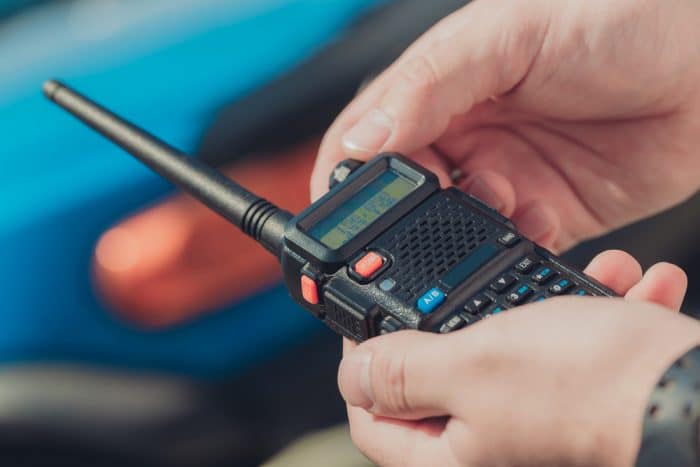
There are a lot of possibilities that may happen during an SHTF scenario. It includes telecommunication failure. Loss of communication is a serious problem, especially when you accidentally get separated from the rest of the pack.
It is essential to include handheld receivers in your list of must-haves. And do a practice test with all the people in the team after your purchase.
Have An Alternative Source Of Heat And Electricity

A power outage can happen during a strong storm, bombing, tornadoes, and earthquakes. Thus, it would be best to have an electricity generator or solar panels that can power up your necessary appliances. Propane-fueled burners can also be an option to cook your food still.
Consider Living Off-Grid

Considering to live off-grid cannot save you from SHTF occurrences, most especially the natural ones. However, it can lessen the risk and damage when it comes to man-made and personal ones.
For instance, growing your food can save you from the risk of being infected by a widespread virus when you do not have to go out to buy groceries. Also, living in crowded places like cities, especially in an apartment building, is more hazardous than staying in the countryside.
Practice Resourcefulness
There is something you forgot to prepare or did not anticipate to be helpful. Recognize that to err is human. Please do not beat yourself for not making it available at your disposal; instead, use the materials present in your surroundings.
Being resourceful is not a skill given by the heavens in an instant. To possess resourcefulness, try reading books on survivalism and DIY alternative tools during a disaster.
Places to Avoid During SHTF
Big Cities

Cities are one of the most dangerous areas during a disaster. Expect that higher crime rates will happen the moment scarcity falls.
Unprepared people can serve as a threat to you during this time. Some people are willing to use violence to loot supplies from those who have.
Besides, proper sanitation will also be a problem since there is a possibility that garbage trucks will not come as often as it does. Trash build-up can cause pollution and the release of hazardous gases, as well as diseases.
Bottlenecks

Avoid crowded and narrow streets, small spaces, crowded areas during an SHTF event. You are subjecting yourself to being trapped in a stampede of panicking mobs, a collapsing infrastructure, or being infected by a contagious disease.
If it is not necessary, never go to public gatherings because this is where many people are present, and usually, space appears to be very limited.
Hospitals
During SHTF situations, many people will need medical attention because of an injury, disease, loss of drug prescription effects, and other critical or non-critical reasons. Usually, when great demands arise, hospital supplies and staffing are not enough to suffice them.
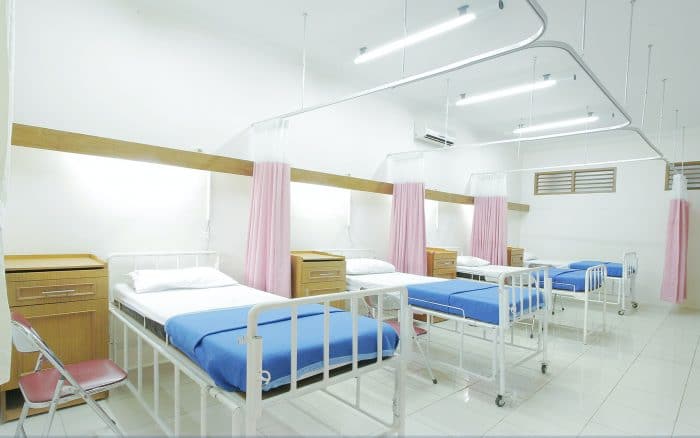
Bear in mind that peril present on your way to the hospital. Sometimes, it is better to stay at home during this time. Hence, practicing first aid application and having necessary medical equipment if you have a sick family member with you is a must.
Supermarkets, Convenience and Grocery Stores

Be vigilant of desperate and unprepared scavengers who will fill the supermarkets and grocery stores. But still, they will not get the amount of supply that they need. Supermarkets and grocery stores can not fully pile up their inventory, most especially the edible ones since it is perishable.
To avoid food waste and gain more profit, most of these stores opt for Just In Time supply deliveries, stocking up enough inventory for a specific period. To avoid doing last-minute grocery shopping, try to buy extras on sunny days for you to have a supply when the rainy season comes.
Drug Stores

Over a hundred million people in the USA alone are utilizing prescription drugs. Thus, one of the longest queues before a catastrophe hits are the drugstores.
A person using prescription medicine will not last long if drugs are taken out from their system.
It is also tricky to stock these kinds of medication since mostly its production is JIT (Just In Time) to maintain the drug’s effectiveness.
Banks
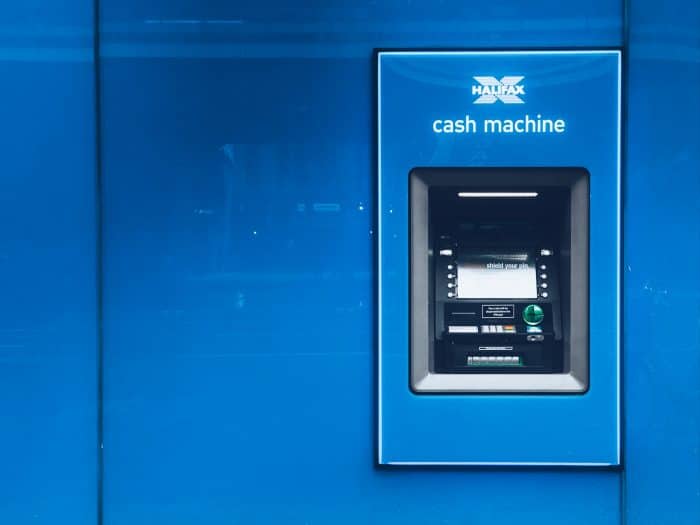
Aside from drugstores, people will surely line up in front of an ATM.
There are scenarios like massive power outages where debit and credit cards will lose their purpose in purchasing things since POS in counters also does not work.
It is the time where actual cash is needed. To save yourself from being one of the people in the queue for cash withdrawal, practice saving up money at home. Remember that the cash dispensed from ATMs might not be enough for all people lining up.
Post SHTF Move
It feels like a lump is taken out from the chest after an SHTF, but it is not the perfect time to slack off and go back to our old habits. It can be a booby trap, the calm before the storm, or maybe you are resting in the eye of the storm.
While everything is still in your control, stockpile your supplies well for the next 2 to 4 weeks, check your home security, assess the situation, and establish a sound communication system with your family.
Always Stay One Step Ahead
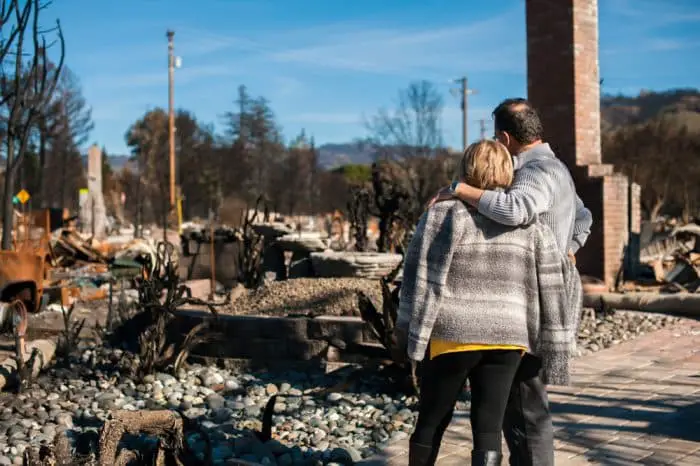
Nowadays, observing how disasters get perilous every time seems to be alarming. An SHTF catastrophe does not care if you are still in the process of recovering from the previous one. It can strike whenever it wants to attack.
Gradually preparing essential things doesn’t mean that you wish the EOTW to happen. It simply shows that you perceive how valuable life is. And, you are putting your best foot forward to protect not only yours but also the lives of those who matter most to you.
It is hard to make other people understand the mechanics of being a prepper for an SHTF event. The important thing is that people you value, like your loved ones, are on the same page as you, especially if you stay in the same household.
We don’t want to wake up in a tumbledown community one day, yet we also don’t want to be game over at level 1.
The CoViD19 pandemic was foreseen and prepared for by preppers but not by average persons who only worry about surviving the present. We don’t want another pandemic to hit us unprepared.
